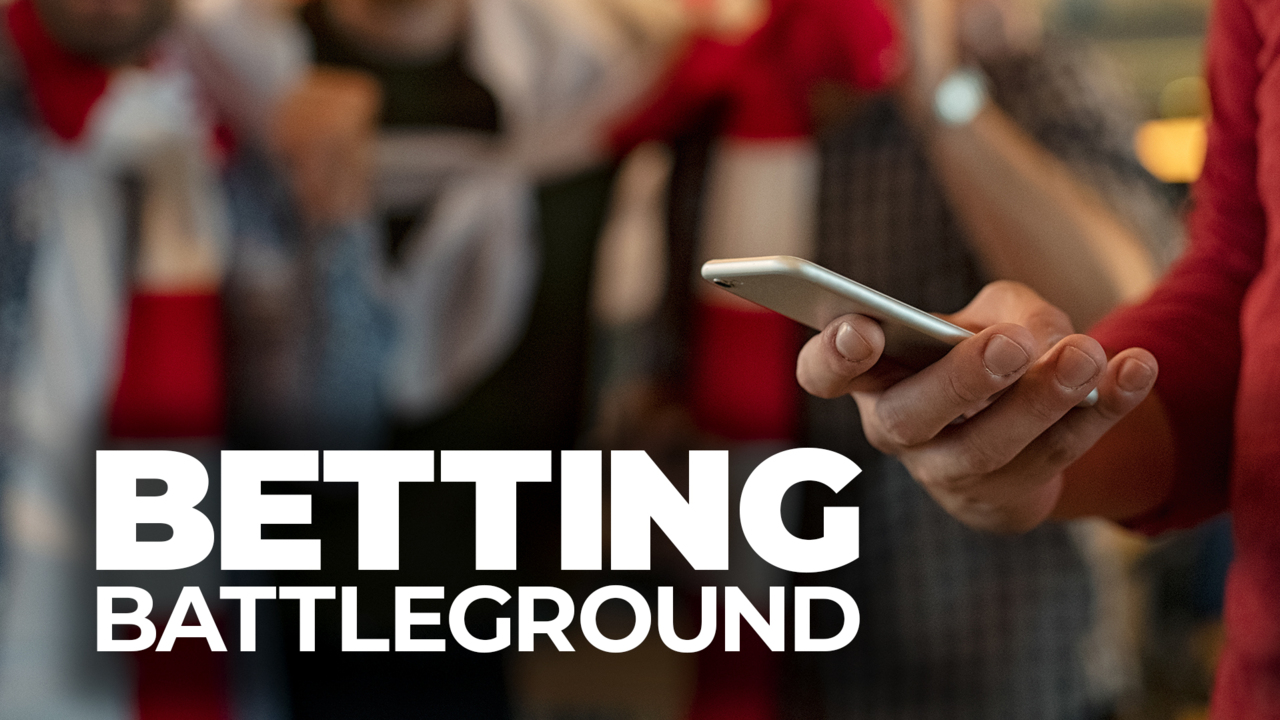
Ad:
Draft Kings new sportsbook app. You can bet on the games you want, anytime you want.
Brent Jabbour
If you’ve watched sports in the last 4 years it’s hard to avoid ads like these.
Ad:
you know what to do.
Brent Jabbour:
Thirty states and the District of Columbia have legalized sports gambling since the Supreme court’’s 2018 ruling striking down a law which effectively banned commercial sports betting.
Two competing ballot measures could see California join that list.
Kathy Fairbanks:
“We’ve got two initiatives on the ballot, propositions 26, which would allow in person sports betting at tribal casinos, and the four licensed racetracks. And then we’ve got prop 27, which would allow online sports betting”
Brent Jabbour:
Proposition 27 is backed by major sports books DraftKings, Fanduel, and BetMGM. The measure is also supported by a number Native American tribes that don’t operate casinos.
Meanwhile casino operating tribes and racetracks have thrown their weight behind prop 26.
The two sides have broken records for spending on a ballot initiative, raising more than half a billion dollars and inundating Californians with non-stop ads.
One of the main selling points for Proposition 27 has been that revenue generated for the state will help fight the homlessness crisis in California, while opponents believe its impact is overstated.
Kathy Fairbanks:
“more than $100 million in advertising, assaulting voters with this message that prop 27 is a solution to homelessness.“
“voters recognize that you can’t solve homelessness, with a measure that creates more problem gambling.”
Brent Jabbour:
This sentiment was shared by California Governor Gavin Newsom, who said in August that while he isn’t taking a position on either proposition. Prop 27 is QUOTE “not a homeless initiative.”
It’s no surprise big money is flowing over the issue. If California were a sovereign nation, it would boast the world’s fifth largest economy, behind Germany.
Colin Mansfield:
“So sports betting would be a meaningful needle mover, if you will, for the casino operators, if they were able to get in there and start offering initiatives, you know, whether it’s commercial or whether it’s tribal, it’s a very well, well followed state given its potential.”
Brent Jabbour:
With massive growth come concerns. In just the second month of legalized sports betting in Michigan, calls to their gambling hotline doubled. Connecticut saw a similar trend in the months after rolling out their offering. And in New Jersey, calls surged 500% in the four years since legalization.
There are also worries of how it will affect the revenue streams of already established tribal gaming.
Kathy Fairbanks:
“And that is an existential threat to tribes in California that is going to undermine their brick and mortar casinos and their tribal self sufficiency. “
Brent Jabbour:
Polling from the NonPartisan Public Policy Institute of California found Californians oppose proposition 27 by a margin of 54 to 34 percent, prompting the campaign to pull back on their ad buys.
Colin Mansfield:
“Any type of legalization in this country is going to take a lot of time and effort and making sure that everybody’s on the right page, and everybody who has some skin in the game ultimately gets heard.
Kathy Fairbanks:
“we could see both go down, and we would, you know, be back to where we are right now.”










